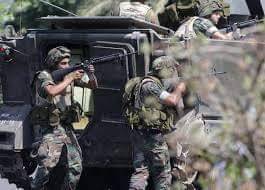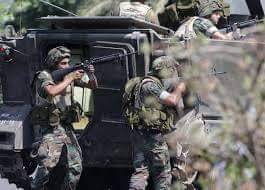The tense security situation and chaos in the city of Tripoli, with the latest incident being the Tal crime, prompted Interior and Municipalities Minister Bassam Mawlawi, in the caretaker government, to convene a meeting of the Central Security Council to discuss the situation in the city. This follows a wave of criticism directed at him and Prime Minister Mikati, particularly regarding the safety concerns that seem to have been neglected by the government.
Through this meeting, Mawlawi aimed to convey that his ministry, its agencies, and he personally are monitoring the security conditions in the city contrary to what has been said, asserting that matters are under their control. After the meeting, Mawlawi acknowledged that Tripoli has reached an unprecedented state of security chaos during his and Mikati's tenure, stating, "Tripoli will not go backward, and we cannot leave the theft gangs and wrongdoers unchecked; we will limit the misuse of weapons and the security plan will be implemented."
Thus, Mawlawi admits that Tripoli is under the control of gangs and armed individuals. The crucial decision taken during the meeting was to establish a new security plan to restore order and stability to the city. Mawlawi stated that this plan has been documented but cannot be disclosed for the sake of its implementation’s safety.
The security plan has been a demand from the residents of Tripoli for some time, especially as the security situation had deteriorated massively in the city and its surroundings. It should not have taken all these crimes for the ministry to decide to act. However, according to observers, the success of this plan will depend heavily on full coordination with the army, which is working to enforce security in Tripoli, particularly at a time when the internal security forces were not even able to manage traffic signals in the city.
During his recent visit to Tripoli, the army commander asked local spiritual leaders to assist with sermons and outreach to combat the ongoing chaos, especially among the youth where drug abuse has become prevalent. Sources familiar with the situation informed "Nidaa al-Watan" that the security plan will primarily rely on increasing the deployment of internal security forces in Tripoli and full coordination with the Lebanese Army, which will enhance its presence in the area and pursue the gunmen in the coming days.
Meanwhile, some observers believe that the "security and military plan will need to lift the political cover off certain wanted individuals and troublemakers; otherwise, it will face the same fate as previous plans." Those concerned with the Tripoli situation indicated that the chaos in Tripoli is due to a lack of social development and job opportunities, asserting that the solution is primarily political and must factor in a development plan to uplift the beleaguered Tripoli in the upcoming phase. Nevertheless, it is essential to contain the rampant chaos in the city before matters spiral completely out of control.
While waiting for the investigation into the Tripoli crime that resulted in the deaths of four individuals to conclude, and to ensure it does not fade into oblivion as previous cases did, the Interior Minister confirmed after the security meeting that "security is not established through consensus and agreement but through enforcement. The law permits us to do so; the Public Prosecution will facilitate our work and legitimize our actions." This is what the Lebanese people are expecting from the state in all regions, not just in Tripoli, to restore its prestige, but the effectiveness will ultimately hinge on execution.




